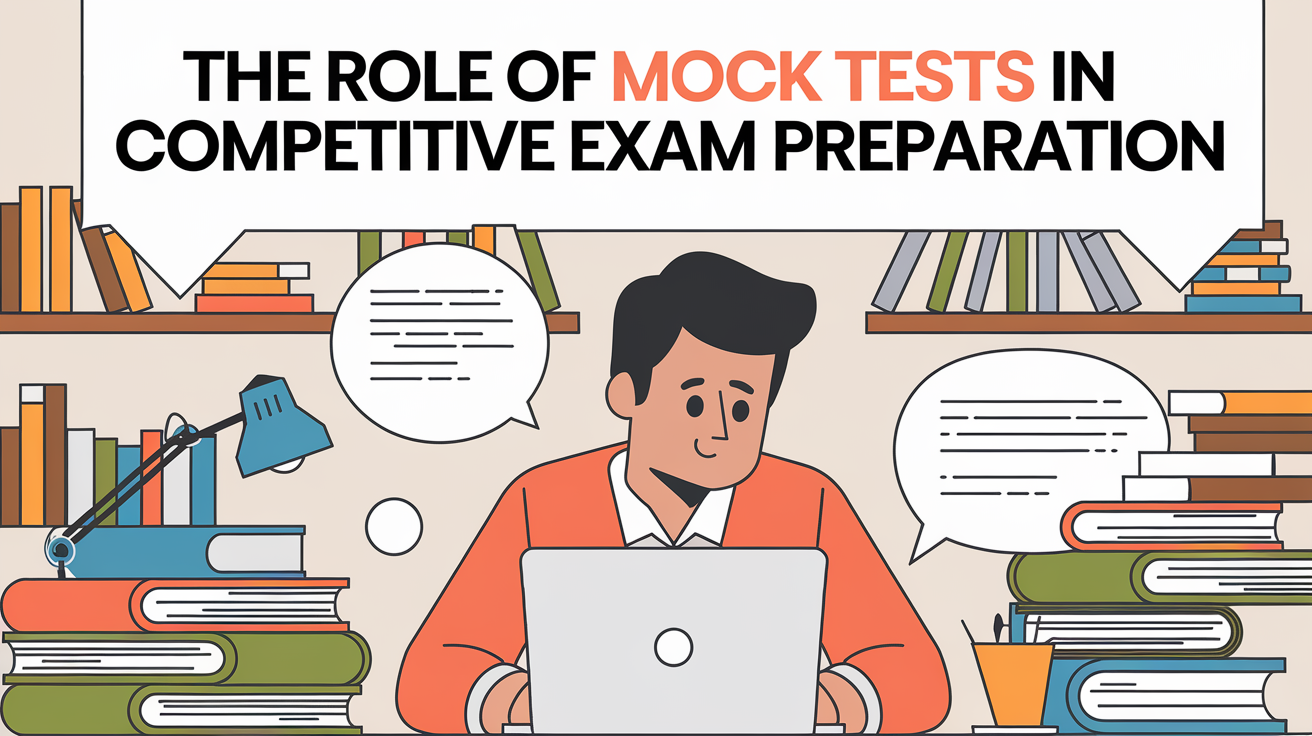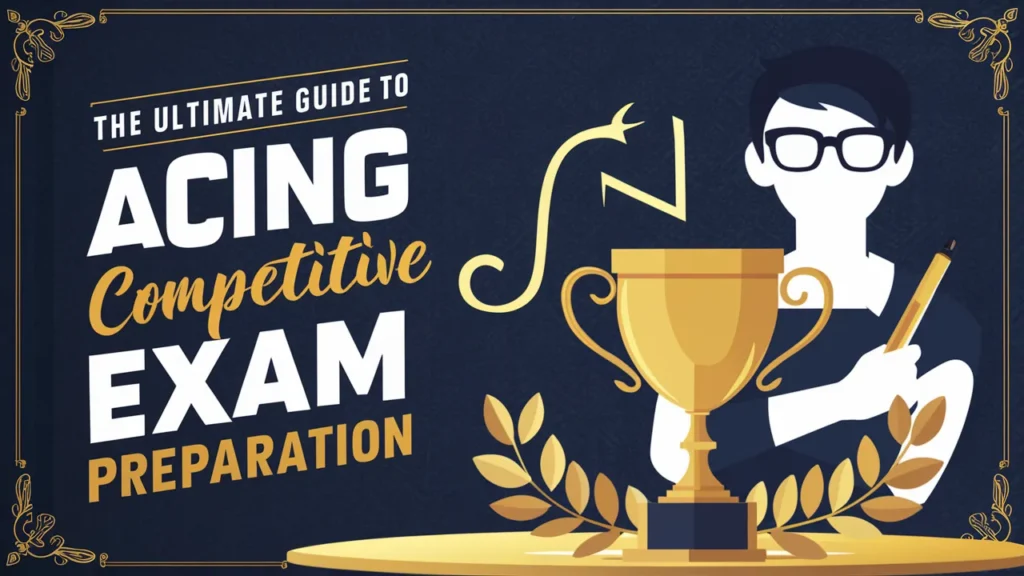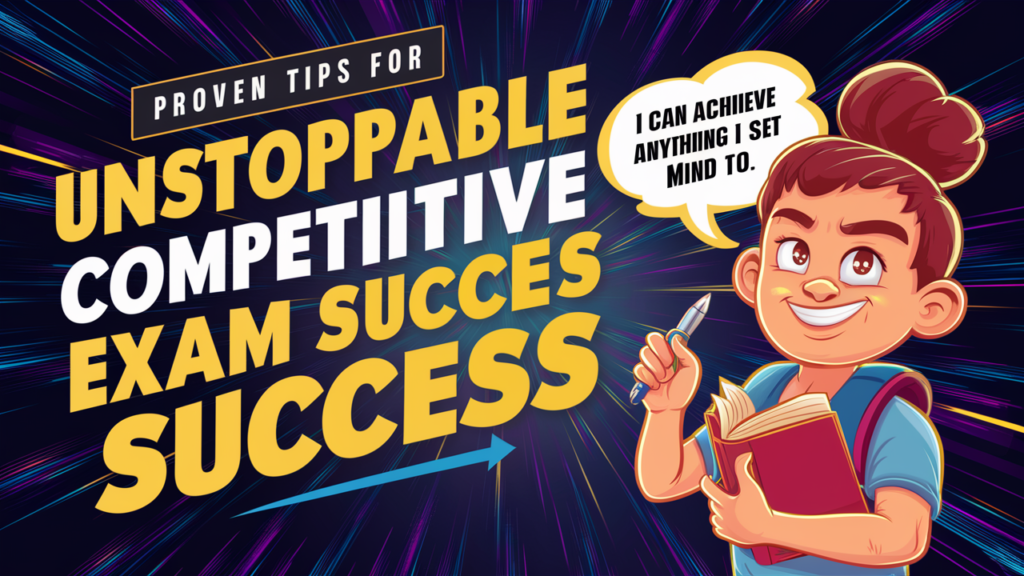
In the realm of competitive exams, where every mark counts, students often seek ways to refine their preparation and boost their performance. One proven strategy that has consistently helped students excel is the use of mock tests. Mock tests simulate the actual exam environment, offering students the opportunity to practice, assess their knowledge, and improve their performance under time constraints. This blog post will explore the importance of mock tests, their role in competitive exam preparation, and strategies to make the most out of them.
1. What Are Mock Tests?
Mock tests are practice exams designed to mirror the format, structure, and difficulty level of real competitive exams. They are created based on the syllabus, covering key topics and question types that are likely to appear in the actual exam. These tests help students familiarize themselves with the exam pattern, manage their time effectively, and experience the pressure of a real exam scenario.
2. Why Are Mock Tests Important for Competitive Exam Preparation?
Mock tests play a crucial role in preparing for competitive exams. Here’s why they are essential:
a. Understanding the Exam Format
Competitive exams often come with a specific format, including multiple-choice questions, short-answer questions, or even essays, depending on the exam. Mock tests allow students to become familiar with the structure and types of questions that will appear on the test day.
- Question Types: Mock tests help students understand different question formats such as MCQs, reasoning questions, or fill-in-the-blanks.
- Exam Pattern: Students can practice the number of questions, time limits, and marking schemes, ensuring they are fully aware of what to expect.
b. Time Management
Time management is one of the most critical factors in competitive exams. Even if a student knows all the answers, failing to manage time effectively can result in incomplete sections or unanswered questions. Mock tests help students develop time management skills by practicing under timed conditions.
- Simulated Time Pressure: By setting strict time limits during mock tests, students can practice completing the exam within the allotted time.
- Identify Time-consuming Sections: Mock tests help students recognize which sections require more time, allowing them to plan better on the actual exam day.
c. Self-Assessment and Progress Tracking
One of the most valuable aspects of mock tests is the ability to assess performance and track progress. After each mock test, students can evaluate their results, identify their strengths and weaknesses, and adjust their study plans accordingly.
- Performance Review: Mock tests provide insights into how well-prepared a student is for the exam. Regular testing highlights areas needing improvement.
- Monitor Progress: As students take multiple mock tests, they can track their progress, ensuring they are improving and closing gaps in their knowledge.
d. Boosting Confidence
The more familiar students are with the exam pattern and format, the more confident they will be on exam day. Taking several mock tests helps reduce the fear of the unknown, allowing students to approach the actual exam with a calm and confident mindset.
- Overcoming Exam Anxiety: Repeatedly practicing under exam-like conditions helps students reduce stress and build confidence.
- Familiarity Breeds Comfort: Familiarity with the types of questions and the structure helps students remain calm and focused during the real exam.
e. Learning from Mistakes
Mistakes made during mock tests offer valuable learning opportunities. By reviewing wrong answers and understanding where they went wrong, students can refine their understanding and avoid making the same mistakes during the real exam.
- Detailed Analysis: Mock tests often come with answer keys or explanations, enabling students to learn the correct approach to questions they got wrong.
- Problem-solving Strategies: Reviewing mistakes helps students develop effective strategies to tackle challenging questions in future exams.
3. How to Make the Most Out of Mock Tests
While mock tests are essential, how students approach them can make a significant difference in their exam preparation. Here are some tips for maximizing the benefits of mock tests:
a. Start Early
It’s important not to wait until the final weeks before the exam to begin taking mock tests. Incorporating mock tests early in the preparation process allows for gradual improvement and better self-assessment.
- Take One or Two Tests Early On: Early mock tests give a baseline of where a student stands and help in creating a more focused study plan.
- Use Mock Tests as a Learning Tool: Early tests shouldn’t be viewed as the final benchmark but rather as a diagnostic tool to identify areas that need improvement.
b. Simulate Real Exam Conditions
To get the most out of a mock test, it’s essential to simulate the actual exam environment. This means taking the test in a quiet place, setting a timer, and following the same rules as the real exam.
- Avoid Distractions: Turn off your phone and eliminate other distractions to simulate a real exam environment.
- Stick to Time Limits: Don’t give yourself extra time during the test. Practice within the strict time limits to enhance your time management skills.
c. Analyze Your Performance Thoroughly
After completing each mock test, it’s crucial to spend time analyzing the results. Don’t just focus on the score; review each question, especially those you got wrong.
- Understand the Errors: Identify whether mistakes were due to a lack of knowledge, misinterpretation of the question, or time pressure.
- Target Weak Areas: After reviewing, focus on the topics or question types where you struggled and revise them before the next mock test.
d. Maintain Consistency
Taking one or two mock tests won’t be enough. To see real improvement, it’s essential to take mock tests regularly.
- Weekly Mock Tests: Schedule a weekly mock test to track progress and continuously refine your preparation strategy.
- Gradual Progress: Consistency will help students steadily improve their performance and approach the final exam with greater confidence.
e. Utilize Online Platforms
Many online platforms offer mock tests tailored for specific competitive exams. These tests often include detailed reports, performance analytics, and peer comparisons to help students gauge their performance against others.
- Leverage Technology: Use online tools to access a wide range of mock tests, previous year question papers, and time-bound assessments.
- Compare Results: Some online platforms provide comparative analysis with other test-takers, offering additional insights into areas where improvement is needed.
4. When to Incorporate Mock Tests Into Your Study Plan
Mock tests should be an integral part of your study plan from the early stages. Here’s a rough guideline for when and how to incorporate them:
- Initial Phase (4-6 months before the exam): Take a few mock tests to understand the exam format and identify weak areas.
- Mid-Preparation (2-3 months before the exam): Increase the frequency of mock tests. After each test, focus on areas needing improvement.
- Final Stage (1 month before the exam): Take full-length mock tests regularly, at least 2-3 times a week. Focus on revising mistakes and refining time management skills.
Conclusion
Mock tests are an indispensable tool for competitive exam preparation. They offer students the chance to practice under real exam conditions, manage time effectively, and learn from their mistakes. By starting early, maintaining consistency, and thoroughly analyzing performance, students can significantly enhance their chances of success. Incorporating mock tests into a structured study plan will not only boost confidence but also ensure that students are fully prepared for the challenges of the actual exam.


